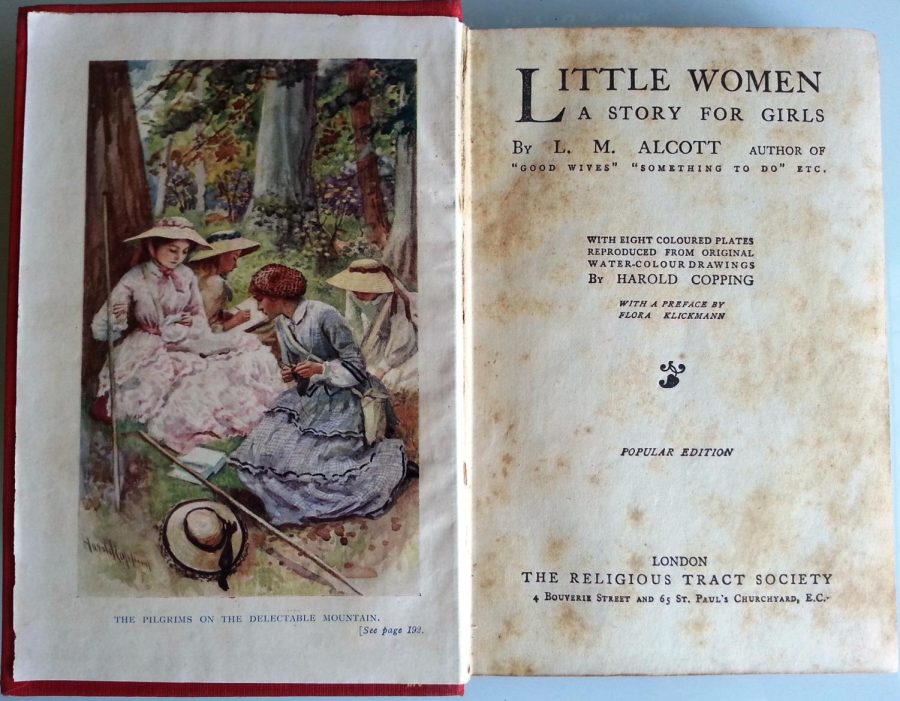DI Voices | I grew up with the March sisters
Photo courtesy of Aussie~mobs/Flickr
Columnist Storey Childs reflects on how much the novel, “Little Women” written by Louisa May Alcott, has impacted her life.
Oct 12, 2022
I don’t remember the first time that I read the book “Little Women” by Louisa May Alcott. It may have been in middle school by the recommendation of my mother, who wanted to give me as many books as possible to fill my mind as it grew.
As fuzzy as my memory is of the first time I read the book, I can definitively say that I would not be who I am today without it. It has helped shape who I have become.
“Little Women” was written in 1868 by Louisa May Alcott, drawing off of her familial life with her sisters. Alcott writes of the March family and their experiences during the Civil War. The family consists of the March sisters: Meg, Jo, Beth and Amy, their mother Marmee and other close family and friends. It is generally remembered as a tale of domestic struggles in war-time America, and although this is true, it consists of so much more.
As the March sisters grow, they each learn what it means to be a woman, a sister and a friend. Some of them fall in love, while others yearn for it. They experience deep grief after losing someone they love, but also revel in creativity in a time when it was improper for women to do so. They also understand that sacrifices create good character. All of these factors contribute to the identity of being a little woman.
I was raised by my own parents and lived with my sisters; I always wanted to be one of the Little Women. I thought that nothing would be more fun than playing with the sisters in the snow or attending a picnic with their friend Laurie. The balls sounded elegant and the lessons they learned were useful. But I knew that I never would be able to time travel to grow up with the March sisters.
Get The Daily Illini in your inbox!
Upon reflection on the importance of “Little Women” in my life, I now realize that even though I did not get to grow up with the March sisters, I got to grow up alongside them.
Though I continually reveled in the vibrant scenes of the book, Jo March is the reason I kept coming back.
Jo March was a girl in the 1860s, a tough position to be in if “traditional lady-like decorum” was not your ultimate goal. All she wanted in her childhood was to be treated as an equal and to write. She was defiant, headstrong and fiercely independent, daring to put her writing out into the world in opposition to what society said.
However, under her rough-around-the-edges exterior is one of the most caring and thoughtful people I have ever encountered. As she grew, she realized that all she needed to be in this world was herself. I admire that about her.
My own personality at first glance is nothing like Jo’s. I am anxious; she is confident. I am riddled with self-doubt; she is sure of herself. She hates organization; I run my life on it. So what connects us except for my admiration of her qualities?
What connects us is not just the shared sense of imperfection but the possibility of hope. Jo knew that she was not perfect, and as I have grown, I have become increasingly aware that flaws simply make me human. But she also knew that with that imperfection came opportunity. She knew that only when one is being their most brave and most imperfect self will they be able to discover a genuine sense of independence.
All I wanted growing up was to be Jo March. But all Jo wanted to be, out of everything that she sought after, was herself. So I decided to do the same, utilizing the story of the March sisters as a guidepost to become who I am today.
I think that Jo March would be proud.
Storey is a junior in LAS.






